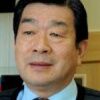Heung-Sik Choi
AMBASSADOR HEUNG-SIK CHOI IS THE SECRETARY GENERAL OF THE 2009 IAC LOCAL ORGANISING COMMITTEE (LOC). HE HAS BEEN INSTRUMENTAL IN BRINGING THE IAC TO KOREA IN 2009 AND IS A KEY MEMBER OF THE LOC, PUTTING AN EMPHASIS ON THE IMPORTANCE OF INVOLVEMENT OF YOUTH.
AS A MEMBER OF THE FOREIGN SERVICE OF THE REPUBLIC OF KOREA, HE HAS BEEN THE CONSUL IN BOSTON USA, MINISTER IN FRANCE, AMBASSADOR TO ALGERIA, CONSUL GENERAL IN HONOLULU, AMBASSADOR TO THE CITY OF DAEJEON, AND IS NOW THE FOREIGN SERVICE ADVISOR TO THE CITY OF DAEJEON.

Heung-Sik CHOI
Secretary General, IAC Local Organising Committee (LOC)
Republic of Korea
How is the Republic of Korea using its space assets to secure peace?
A very interesting question! We in Korea have policies for space activities and can obtain great benefits from the development of space technology and the peaceful uses of outer space. We can certainly use the knowledge acquired from space activities to address the problems of climate change, monitor natural disasters and realise sustainable development. Even nations without advanced space technology can also enjoy the benefits of space through international and regional cooperation mechanisms. The Republic of Korea (ROK) launched its first satellite in 1999 and provided an enormous amount of research, environmental and disaster monitoring information to the Asian region until it finished its mission in 2008. Further Korean satellites are expected to provide the Sentinel Asia programme, initiated by Japan, with visual information on climate and weather conditions. In addition, Korea is actively involved in environmental and ocean science in their research activities regarding environmental change.
Does the Republic of Korea plan to go to the Moon with manned or unmanned missions?
The Korean Government proclaimed a space development plan in 2007 aiming to launch an unmanned mission to the orbit of the Moon by 2020 and to land an unmanned spacecraft on the Moon by 2025. In line with this, the government issued a joint statement in 2008 with the United States in which both countries identified potential interest of space cooperation including lunar missions. The ROK is also involved in the joint discussions with 14 international space agencies for long-term plans to send both robotic and manned missions towards the Moon and Mars. We are involved in a wide range of potential cooperation efforts in this area.
Why did the Republic of Korea wish to the host this year's International Astronautical Congress?
The ROK has already put its first female astronaut into space last year. This year we will launch from Korea itself, a 100kg satellite into space called KSLV-1. This is the first part of a series of missions in 2009. This year it is very important to Korea as we enter this first stage of our space development plan, to host IAC 2009 celebrating this effort and at the same time using the momentum this event brings. The event is a springboard for IAF members to exchange information on cutting-edge space technology. It is a forum for global space business and enables people to meet new partners. Furthermore, it offers space education and development opportunities and programmes for future generations. Climate change is one of the topics of IAC 2009 and we seek ways to cope with climate change. The theme for the congress is Space For Sustainable Peace and Progress - very important on our divided peninsular. Korea is also a country surrounded by big powers: China, Japan, Russia. Having the IAC in Korea is very important. It shows a model towards space development for emerging countries. Questions for Ambassador Choi were submitted by the IAF Young Professionals Programme community forming part of their Space Leaders Series. You may subscribe here. The full 24 minute interview can be found on the iafastro YouTube site here.
